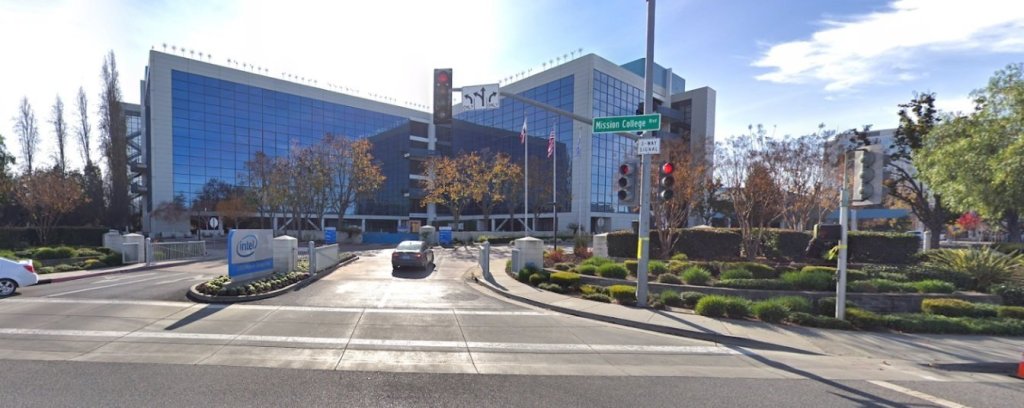Intel has long been a bellwether, founded more than 50 years ago to produce the very product that gave Silicon Valley its name. Now, the chipmaker and dozens of the region’s other old-guard companies are among the California businesses that could become a huge source of additional tax money for local government, schools and community colleges.
Proposition 15 would change the way commercial property is taxed. Instead of paying property taxes based on the value when their land was purchased, many businesses would pay rates based on a parcel’s current value if voters approve the measure in November. Older landowners such as Intel, which bought much of its property back when it was a bargain, would face bigger hikes. Relative newcomers such as Apple would see smaller increases.
It’s a return to the way commercial property used to be taxed, before 1978’s Proposition 13 transformed the landscape and crystallized a nationwide taxpayers’ revolt.
With the pandemic and growing inequality as a backdrop, arguments on both sides are fierce, and the campaign is expected to be one of this election’s most expensive.
Supporters argue the new measure will help close corporate loopholes that have made California a real estate tax haven while depriving residents of more funding for essential government services. By targeting properties worth at least $3 million, they say, it will protect smaller owners of commercial property at a critical time.
“We’re becoming kind of like a place where outside folks, where billionaires from all over, park their money and pay no taxes on it, or very little taxes,” said David Goldberg, a vice-president at the California Teachers Association, which is backing the measure. “It’s devastating us.”
But opponents, which include the state’s chamber of commerce, the California Retailers Association and the Howard Jarvis Taxpayers Association, counter that Prop. 15 is a potentially devastating new tax in a state that’s already expensive for businesses. Plus, they worry that bigger commercial landlords could pass increased costs on to struggling small businesses through higher fees at a time when many are barely hanging on or have shut down during COVID-19.
“The impact from Prop 15 is going to be felt throughout the economy, especially by small businesses and ultimately by the consumers because these increased costs are going to land on the pocketbook of the consumer,” said Matthew Mahood, CEO of the Silicon Valley Organization, the region’s chamber of commerce.
Currently, commercial and industrial property owners benefit from the same Proposition 13-era rules homeowners do: Their property taxes are based on what the value was when they bought the property, not what it’s worth today. Increases are limited to 2 percent a year, protecting long-term owners in particular from a meteoric real estate market. If Prop. 15 is passed, its impact will be felt more heavily by companies such as Intel, which bought much of its property between 1980 and 1994 at prices far lower than today’s market rates. The company paid $12.1 million in Santa Clara County property taxes in 2020.
Apple, meanwhile, paid $66 million in property taxes this year. That’s partly due to its most valuable holding, its new Spaceship headquarters, which was assessed at almost $4.2 billion after it opened in 2017. Most of the company’s other 31 parcels in Santa Clara County were purchased after 2001, a real estate lifetime after Intel bought its land.
Proponents say reassessing commercial and industrial property in California could bring in as much as $11.5 billion in taxes to be split 60-40 between local governments and K-12 schools and community colleges. Prop. 15 would do that by creating a split roll, leaving intact homeowner’s Proposition 13 protections while changing the rules for commercial owners.
Supporters point to a report from Blue Sky Consulting that found 92 percent of the new tax would be paid by just 10 percent of commercial property owners, thanks to several provisions they say shield small-business owners from a sudden tax increase and even offer some tax breaks on commercial equipment. “This is really going after a targeted group of folks,” Goldberg said.
Prop. 15 has the support of the California Democratic Party, Gov. Gavin Newsom and vice-presidential candidate Sen. Kamala Harris, various school districts and multiple labor unions representing teachers and other municipal workers. The Yes on 15 committee has raised more than $40 million since 2018, including nearly $6.4 million from the Chan Zuckerberg Initiative, about $11.8 million from the California Teachers Association and more than $12.3 million from local and statewide chapters of the Service Employees International Union. The No on Prop. 15 campaign has raised $25 million, more than $13 million of that from the California Business Roundtable.
Opponents say many small businesses lease but don’t own property, and some have lease agreements in which tenants pay for any increases in property taxes. Supporters counter that protections in the measure could delay any increases for some small-business tenants by several years, giving them time to renegotiate payments.
It’s possible the ongoing recession could bolster the proposition’s chances as voters consider the impact of a slowing economy on strained state and local budgets. If so, it would be the culmination of decades of work from activists hoping to roll back some of Prop. 13’s restrictions.
“It’s been a long time in the making and I think it’s here and given the state of finances in California and the need for new revenues by the schools … it’s probably coming at a good time,” said Mark DiCamillo, director of the Berkeley IGS Poll, which in September found 49 percent of likely voters support the proposition, 34 percent oppose it and 17 percent are undecided.
“It’s not a direct tax for most people,” he said. “When it comes to taxes, voters have a mindset of, ‘Don’t tax me, tax that guy behind that tree, tax somebody else.’ “










